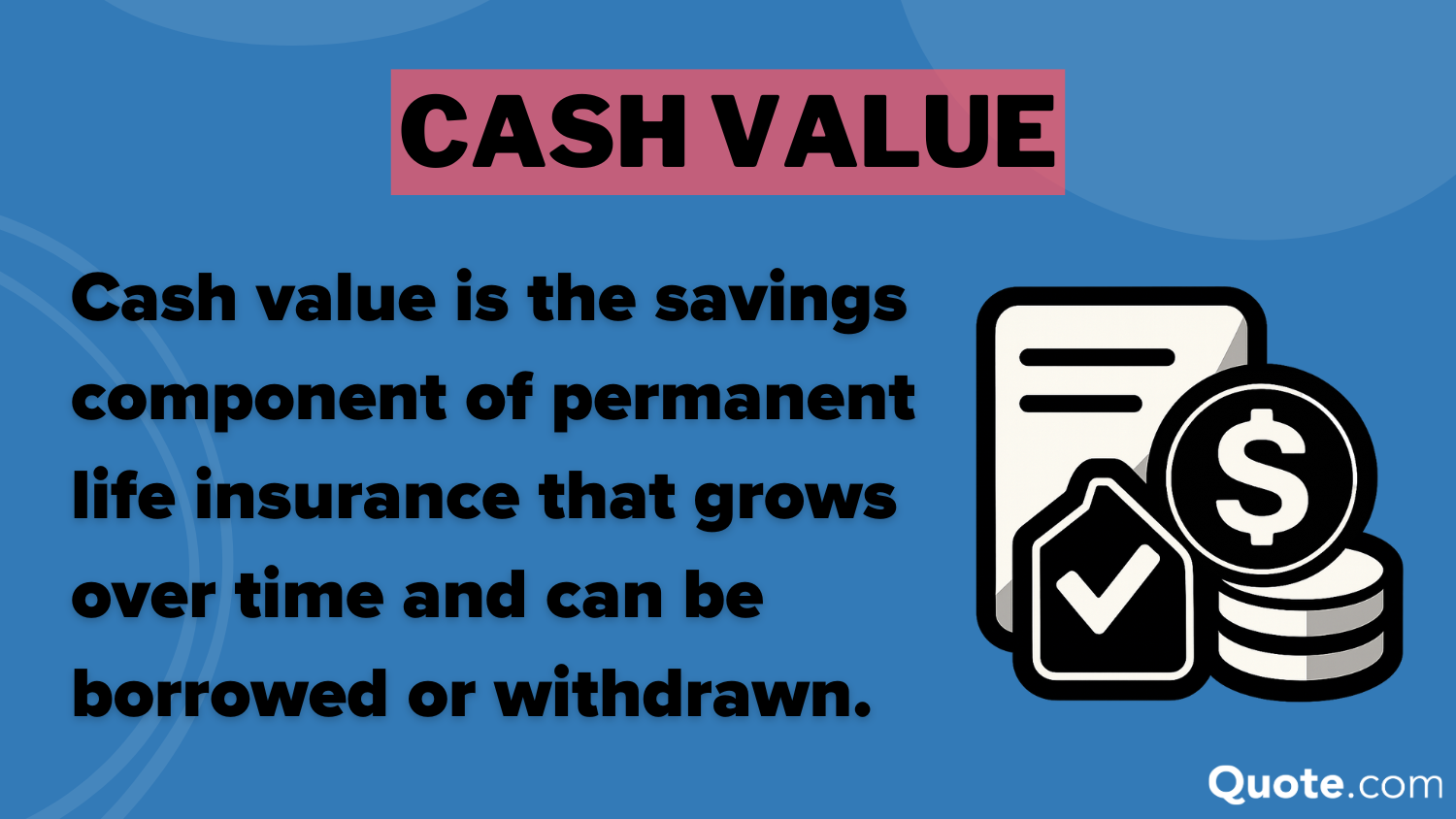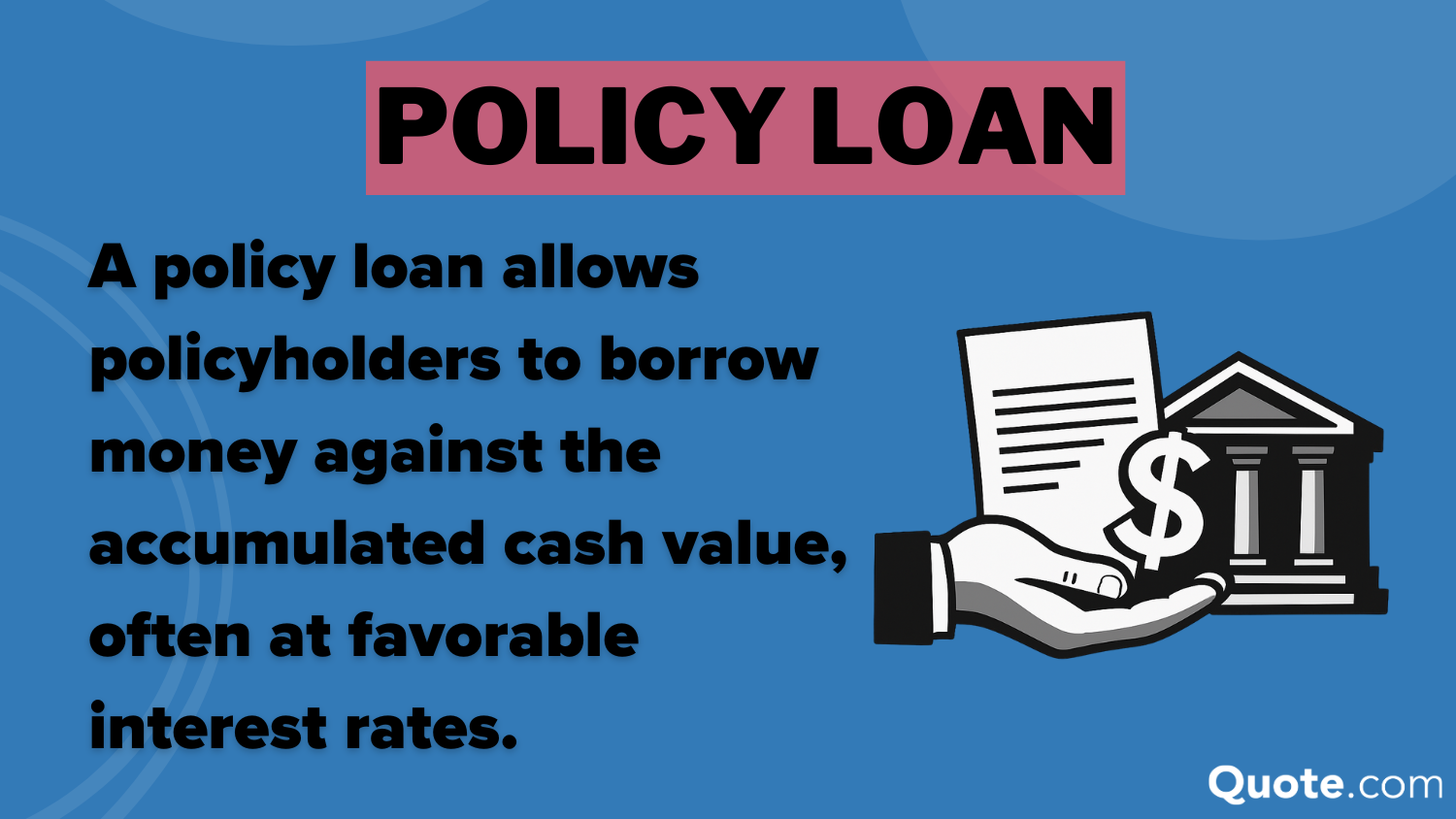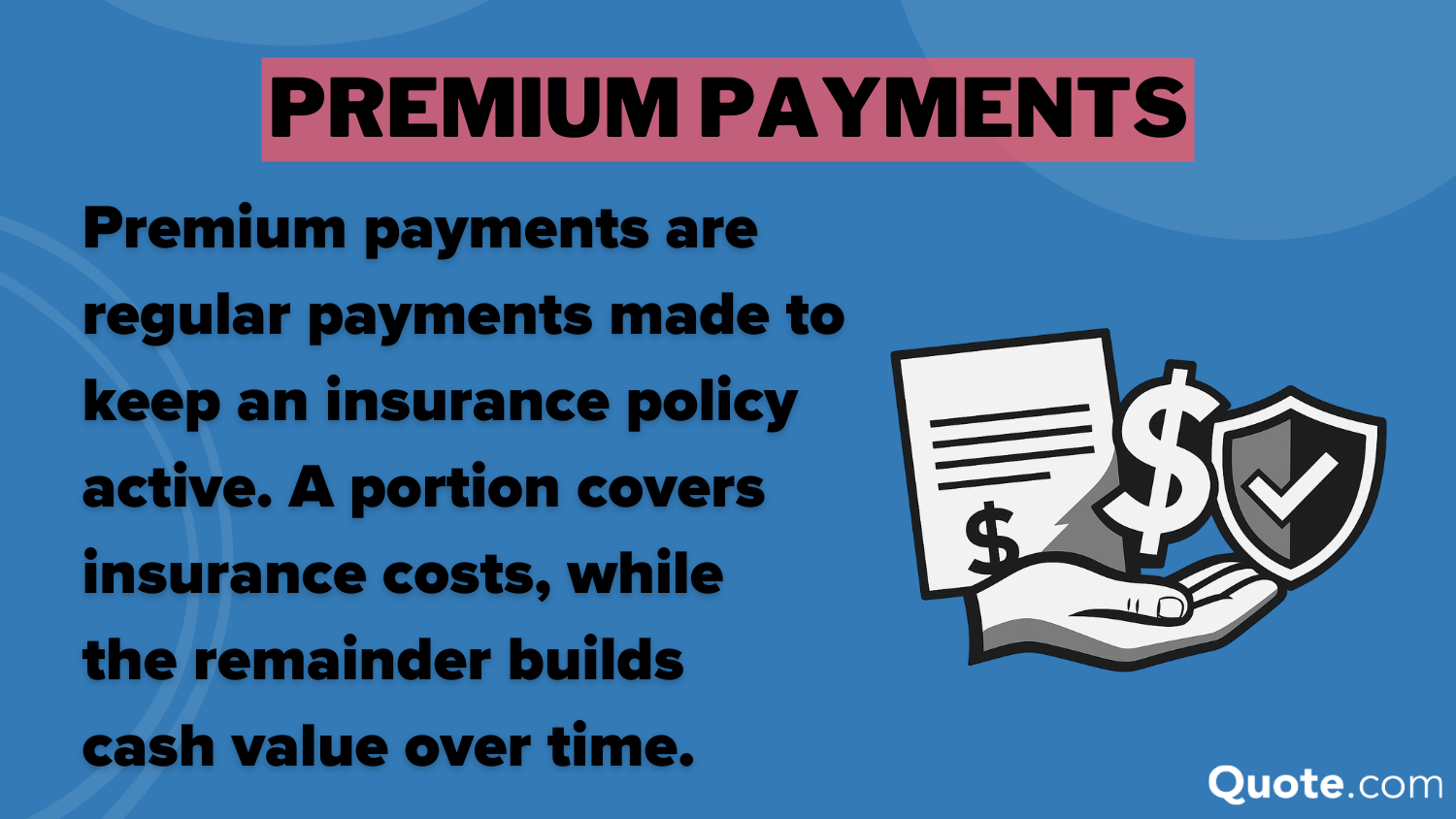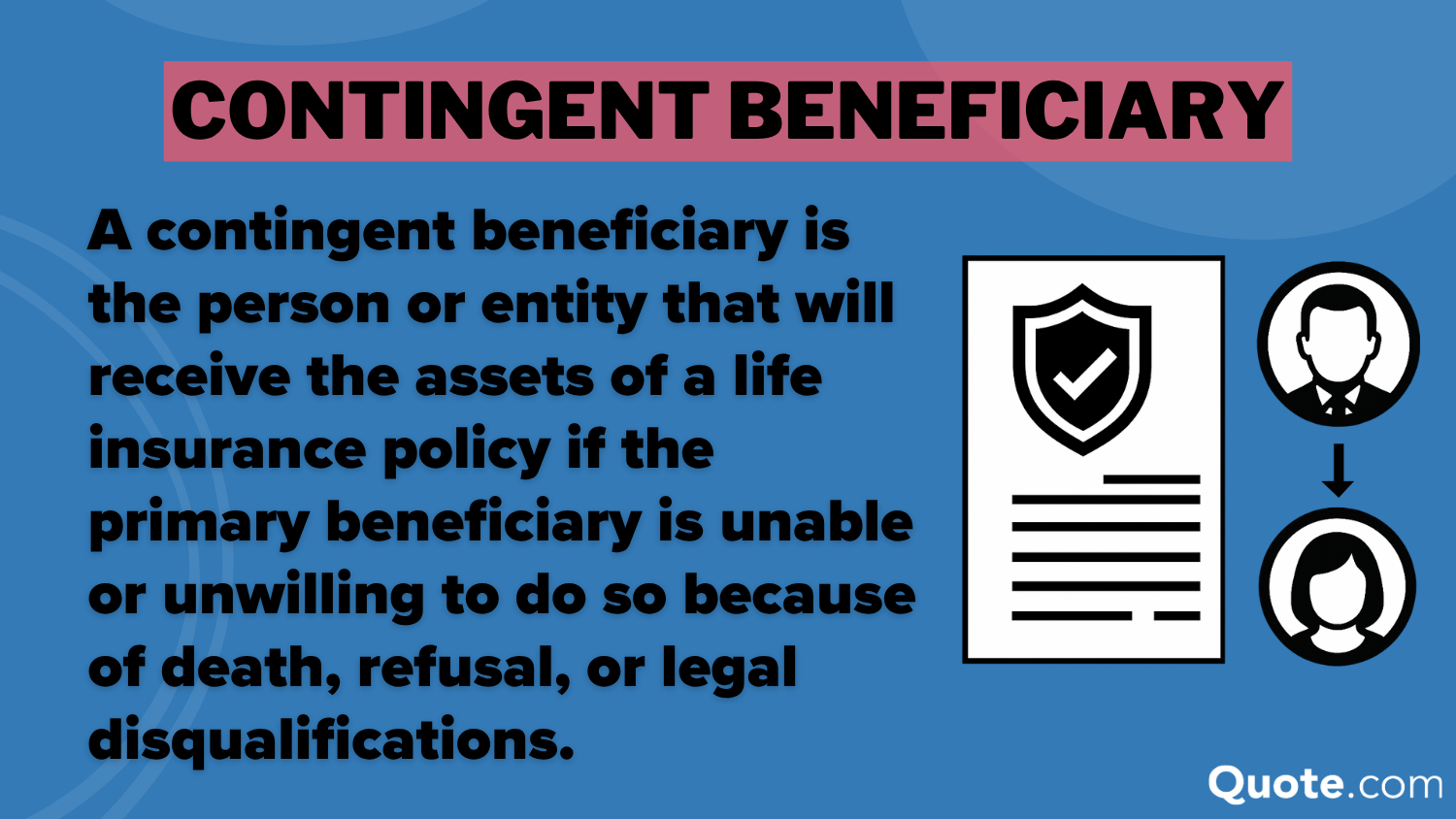Cash Value Life Insurance in 2026
Cash value life insurance combines permanent protection with savings that grow through interest or investments. Transamerica is one of the best cash value life insurance providers, offering whole life rates starting at $115 per month. Cash value in life insurance is not available with term policies.
Read more Secured with SHA-256 Encryption




Table of Contents
Table of Contents


Licensed Insurance Agent
Heidi works with top-rated life insurance carriers to bring her clients the highest quality protection at the most competitive prices. She founded NoPhysicalTermLife.com, specializing in life insurance that doesn’t require a medical exam. Heidi is a regular contributor to several insurance websites, including FinanceBuzz.com, Insurist.com, and Forbes. As a parent herself, she understands the...
Heidi Mertlich


Senior Director of Content
Sara Routhier, Senior Director of Content, has professional experience as an educator, SEO specialist, and content marketer. She has over 10 years of experience in the insurance industry. As a researcher, data nerd, writer, and editor, she strives to curate educational, enlightening articles that provide you with the must-know facts and best-kept secrets within the overwhelming world of insurance....
Sara Routhier


Licensed Insurance Agent
Brad Larson has been in the insurance industry for over 16 years. He specializes in helping clients navigate the claims process, with a particular emphasis on coverage analysis. He received his bachelor’s degree from the University of Utah in Political Science. He also holds an Associate in Claims (AIC) and Associate in General Insurance (AINS) designations, as well as a Utah Property and Casual...
Brad Larson
Updated September 2025
Cash value life insurance offers permanent coverage with a built-in savings account that grows through interest or investments, making it a powerful financial planning tool. Policies stay active as long as premiums are paid, providing lifetime protection.
- Cash value in life insurance combines lifelong coverage with savings growth
- Access cash value through tax-free loans or emergency withdrawals
- Top insurers like Geico offer cash value life insurance rates as low as $110/mo
A cash value life insurance policy is a type of whole life insurance where premiums fund both the death benefit and the cash value. Tax-deferred growth and potential dividends are unique to this type of life insurance and not available with term life insurance.
It’s ideal for those seeking lifelong protection and access to flexible funds. Find cheap life insurance quotes by entering your ZIP code into our free quote comparison tool.
Cash Value Life Insurance Policy Explained
Cash value policies are a type of permanent life insurance that gives you coverage for your whole life as long as you keep paying your premiums. It also builds savings over time, which you can use for big expenses or emergencies. These features make cash value life insurance more than just protection.
Cash Value Life Insurance Coverage Breakdown| Feature | What It Means |
|---|---|
| Death Benefit | Payout to beneficiaries when the insured dies |
| Cash Value | Savings that grow through interest or investments |
| Premium | Payments that build both death benefit and savings |
| Policy Loan Option | Option to borrow against the cash value at low rates |
| Surrender Value | Cash value available if the policy is canceled early |
| Dividends (if any) | Extra returns available on some whole life policies |
| Coverage Duration | Coverage that lasts as long as premiums are paid |
| Tax Advantages | Savings grow tax-deferred; benefits usually tax-free |
Your cash value life insurance policy can help cover funeral costs, provide money to loved ones, and even let you borrow for things like college tuition or home repairs. A policy loan lets you borrow from your cash value without a credit check, making it quick and easy to access funds.
Interest rates are usually lower than those for personal loans or credit cards. If not repaid, the loan and interest are taken from the death benefit, so repayment is important to keep full coverage. This mix of lifelong protection and savings growth makes it a good choice for families who want both security and a way to build funds over time.
Free Life Insurance Comparison
Compare Quotes From Top Companies and Save
Secured with SHA-256 Encryption
Cash Value Life Insurance Rates
Cash value life insurance costs more than term life insurance because part of each premium payment is set aside to build savings. These savings, called cash value, grow over time through interest or investments and can be borrowed or withdrawn when needed. Use a cash value life insurance calculator to compare policy costs from different insurers and see how term and whole life coverage prices differ.
Cash Value Life Insurance Monthly Rates by Policy Type| Company | 20-Year Term | Whole Life |
|---|---|---|
 | $18 | $120 |
| $20 | $135 | |
 | $17 | $110 |
| $22 | $150 | |
| $19 | $125 | |
| $24 | $160 | |
| $21 | $145 | |
 | $25 | $140 |
| $23 | $155 | |
| $15 | $115 |
Premium payments are the heart of cash value life insurance. Higher premiums from companies like Northwestern Mutual at $160 a month often reflect stronger guarantees or dividend potential, which can increase long‑term value. Term life does not build cash value, which is why its premiums are significantly less.
Each time you pay, part of the money covers the death benefit, and the rest goes into your cash value savings. These payments are directly tied to the monthly rates shown in the table above. For example, Transamerica’s $115 monthly whole life premium not only keeps your policy active but also steadily builds cash value you can access later.
Paying your full premium on time is key to keeping your cash value life insurance in force. Missed payments can reduce your cash value growth and may cause the policy to lapse.
Jeff Root Licensed Insurance Agent
Making payments on time ensures both coverage and cash value growth continue without interruption. Before choosing a policy, check cash value life insurance reviews to compare customer experiences and find the right insurer for your needs.
Comparing Different Life Insurance Types
Choosing the right type of cash value life insurance depends on your goals, budget, and comfort with risk. Each policy type offers a unique mix of growth potential, payment flexibility, and control over investments. Understanding these differences helps you find the balance between guaranteed protection and opportunities for cash value growth.
Cash Value Life Insurance Policy Comparison| Policy | Growth | Flexibility | Control | Risk | Use Case |
|---|---|---|---|---|---|
| Whole Life | Fixed, guaranteed | Fixed premiums | None | Low risk | Long-term stability |
| Universal Life | Flexible, interest-based | Adjustable premiums | Minimal control | Moderate risk | Flexible savings + cover |
| Indexed UL | Tied to market index | Flexible within limits | Limited to index | Capped risk | Growth with protection |
| Variable Life | Market-based accounts | Fully flexible | Full sub-accounts | High risk | High growth, more risk |
Whole life insurance is the simplest option with level premiums and guaranteed growth, making it a reliable choice for long‑term planners. Universal life offers more payment flexibility but needs regular monitoring to stay funded. Indexed UL gives growth tied to a market index but limits losses, appealing to careful savers seeking higher returns.
Variable life carries the highest risk but offers the most control and growth potential, making it suitable for those comfortable with market ups and downs. Use this comparison as a guide to find the best cash value life insurance for your coverage choice with your budget, risk tolerance, and savings goals.
Learn More: What is universal life insurance?
How Policyholders Use Cash Value Life Insurance
Cash value life insurance is often used for more than just leaving money to loved ones. About 20% of policyholders use it mainly for the death benefit, but just as many focus on building cash value to grow savings over time. Around 10% use policy loans, allowing them to borrow from their cash value instead of taking out high-interest credit cards or personal loans (Read More: How Much Life Insurance You Need).
Others take advantage of policy loans or withdrawals to handle emergencies without going into debt. This flexibility makes cash value life insurance a helpful way to protect loved ones while also supporting long-term financial goals. Don’t settle for high life insurance rates. Shop for low rates and ensure your loved ones are protected by entering your ZIP code.

Frequently Asked Questions
What is the cash value in life insurance?
The cash value life insurance meaning is the idea that a part of each premium builds savings that grow with interest or investments over time. You can access this money through withdrawals or loans while you are alive.
Read more: How to Get Life Insurance Quotes
Can I withdraw the cash value from life insurance?
Yes, you can withdraw cash value from life insurance, but doing so usually reduces the death benefit. Withdrawals above what you’ve paid in premiums may also be taxable. Free instant life insurance quotes are just a click away. Enter your ZIP code to get started.
What is the disadvantage of cash value life insurance?
The main drawback is cost. Premiums are much higher than term life insurance. Early on, cash value builds slowly, and fees can reduce growth if you cancel the policy in the first few years.
Can I borrow from my cash value policy?
Yes, you can take a policy loan using your cash value as collateral. Loans are typically low-interest and don’t require credit checks. However, unpaid loans and interest reduce the death benefit. Check out our guide about the average cost of life insurance.
What happens to the cash value after the policy is fully paid up?
Once your policy is paid up, coverage continues, and the cash value can keep growing. You can leave it untouched, withdraw it, or borrow against it without having to make additional premium payments.
Can I sell my whole life insurance policy?
Yes, through a process called a life settlement. You sell your policy to a third party for more than the surrender value but less than the death benefit. This is common for seniors who no longer need coverage.
How long does it take to get cash value from life insurance?
It can take several years before the cash value builds to a meaningful amount. Early on, most of your premiums go toward the cost of insurance and fees, so growth is slow at first and accelerates over time.
Is cash value life insurance a good investment?
It can be, but it depends on your goals. Cash value grows tax-deferred and offers guaranteed returns in whole life policies, but other investments may offer higher growth potential with lower costs.
Learn more: Top 20 Reasons to Buy Life Insurance
Can I lose money in a cash value policy?
Yes, especially with variable life or indexed universal life policies where returns depend on the market. High fees or surrendering a policy early can also lead to losses.
What happens if you don’t pay back a life insurance loan?
If you don’t repay, the outstanding balance plus interest is deducted from the death benefit. If the loan grows too large, the policy could lapse, and you might owe taxes on the gain.
Can I cancel my life insurance policy and get my money back?
How does insurance determine cash value?
Get a FREE Quote in Minutes
Insurance rates change constantly — we help you stay ahead by making it easy to compare top options and save.









